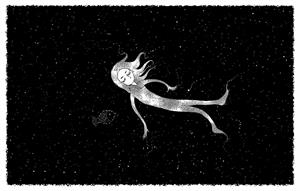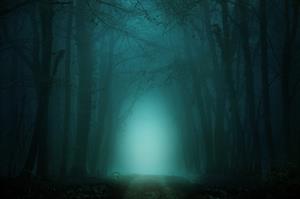
PUMPA - SMART LEARNING
எங்கள் ஆசிரியர்களுடன் 1-ஆன்-1 ஆலோசனை நேரத்தைப் பெறுங்கள். டாப்பர் ஆவதற்கு நாங்கள் பயிற்சி அளிப்போம்
Book Free DemoHere is one in which the poet is describing the experience of falling asleep. Read it aloud.
Lights Out
I have come to the borders of sleep,
The unfathomable deep
Forest where all must lose
Their way, however straight,
Or winding, soon or late;
They cannot choose.
There is not any book
Or face of dearest look
That I would not turn from now
To go into the unknown
I must enter and leave alone
The unfathomable deep
Forest where all must lose
Their way, however straight,
Or winding, soon or late;
They cannot choose.
There is not any book
Or face of dearest look
That I would not turn from now
To go into the unknown
I must enter and leave alone
(Poem by Edward Thomas)
Explanation:
Here, the poem describes the experience of falling asleep.

'Lights Out' describes the process of falling asleep
The poet compares the act of falling asleep to a journey. He says the speaker has come to the borders of sleep. He describes it in such a away that it would seem as if he is travelling to a different land. The line "I have come to the borders of sleep", though, means that the speaker is about to fall asleep.
The poet then compares sleep to an "unfathomable deep forest". He says that sleep is like a forest that is deep, mysterious, and beyond our capacity to understand and explore. So, while we are at the forest called sleep, we are bound to lose control over our consciousness and would get lost eventually.

Sleep is like an unfathomable deep forest
The poet says that we would lose our way no matter how long or short the sleep is. The line "however straight or winding" might be a reference to the stages of sleep. As we had seen previously, sleep involves a cycle of Non-REM sleep and REM sleep. The poet might be referring to this cycle when he described sleep as "winding" (meaning going in spiral). On the other hand, if the person is having a short nap, the process of sleep may turn out to be a "straight" line where the \(4\) to \(5\) stages of sleep appear only once. Hence, no matter whether it is a long night's sleep or an afternoon nap, we would give in to sleep eventually. Moreover, the we "cannot choose" whether to stay awake or fall asleep once we reach the border.
No person or a book could convince the poet from staying awake. It could be the poet's favourite person or an exciting book that he loves reading or writing, but none could stop the poet from falling asleep.

No book (or a person) could keep the poet awake
Sleep is an "unknown" world. One has to leave their consciousness behind to thread through the world of sleep. Back from the world, you would probably have no recollection of what took place while you were asleep. Moreover, sleep is a world where you travel without a company. You will have to "enter and leave alone".

Sleep is an unknown world where you travel alone
The poem describes the concept of sleep at its best. It makes us wonder at the beauty and the mysterious nature of sleep. At the same time, it also explains how inevitable the sleep is. Once you are in the border, you cannot refrain yourself from falling asleep.
Meanings of difficult words:
S.No | Words | Meanings |
1 | Unfathomable | Incapable of being fully explored or understood |
2 | Winding | Move in or take a twisting or spiral course |
3 | Lights Out | The title of the poem; signifies bedtime when the lights are to be extinguished for the night |
Reference:
National Council of Educational Research and Training (2006). The Wonder Called Sleep. (pp. 25-27). Published at the Publication Division by the Secretary, National Council of Educational Research and Training, Sri Aurobindo Marg, New Delhi.